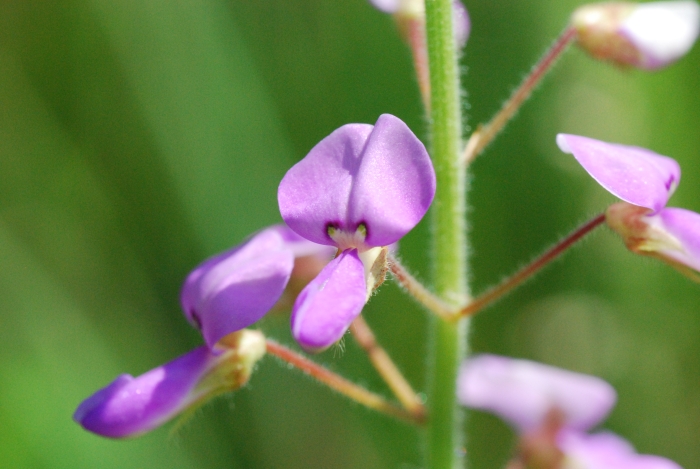Illinois Ticktrefoil
(Desmodium illinoense)
Illinois Ticktrefoil (Desmodium illinoense)
/
/

Joshua Mayer from Madison, WI, USA
CC BY-SA 2.0
Image By:
Joshua Mayer from Madison, WI, USA
Recorded By:
Copyright:
CC BY-SA 2.0
Copyright Notice:
Photo by: Joshua Mayer from Madison, WI, USA | License Type: CC BY-SA 2.0 | License URL: https://creativecommons.org/licenses/by-sa/2.0 | Uploader: Rrburke | Publisher: Wikimedia Commons | Title: Illinois_tick-trefoil_(Desmodium_illinoense)_(5923889990).jpg | Notes: {{Information |Description ={{la|1=''Dianthus deltoides alpinus''}} {{fr|1=[[:fr:Dianthus deltoides|Œillet couché]] - [[:fr:Yvoire|Yvoire]] ([[:fr:Haute-Savoie|Haute-Savoie]] - [[:fr:France|France]]).}} {{en|1




















































Estimated Native Range
Summary
Desmodium illinoense, commonly known as Illinois Ticktrefoil, is a deciduous perennial herb native to the tallgrass prairies and open woodlands of the Central United States, extending into Ontario, Canada. It typically grows to a height of 2-4 feet (0.6-1.2 meters) and spreads to a similar width. The plant features compound leaves with three leaflets and a distinctive inflorescence that is terminal and usually unbranched. Its flowers, which bloom from June to September, are small, ranging from white to pink, and often have white spots near the center, attracting pollinators such as bees and butterflies.
Illinois Ticktrefoil is valued for its ability to fix nitrogen in the soil, making it beneficial for soil health and an excellent choice for restoration projects. It is also used in wildflower gardens and native plantings for its attractive foliage and flowers. This species is adapted to a range of conditions but prefers full sun exposure and can tolerate low to medium water availability. It thrives in soils with medium drainage and is generally low-maintenance once established. However, gardeners should be aware that the seeds have barbed hairs that allow them to stick to clothing and fur, which can be a nuisance.CC BY-SA 4.0
Illinois Ticktrefoil is valued for its ability to fix nitrogen in the soil, making it beneficial for soil health and an excellent choice for restoration projects. It is also used in wildflower gardens and native plantings for its attractive foliage and flowers. This species is adapted to a range of conditions but prefers full sun exposure and can tolerate low to medium water availability. It thrives in soils with medium drainage and is generally low-maintenance once established. However, gardeners should be aware that the seeds have barbed hairs that allow them to stick to clothing and fur, which can be a nuisance.CC BY-SA 4.0
Plant Description
- Plant Type: Herb
- Height: 2-5 feet
- Width: 1-2 feet
- Growth Rate: Moderate
- Flower Color: Pink, White
- Flowering Season: Summer
- Leaf Retention: Deciduous
Growth Requirements
- Sun: Full Sun
- Water: Low, Medium
- Drainage: Medium
Common Uses
Bee Garden, Butterfly Garden, Drought Tolerant, Low Maintenance
Natural Habitat
Native to tallgrass prairies and open woodlands in the Central United States and Ontario, Canada
Other Names
Common Names: Illinois Tickclover, Illinois Tick Trefoil, Illinois Tick-Clover
Scientific Names: , Desmodium illinoense, Meibomia illinoensis,
GBIF Accepted Name: Desmodium illinoense A.Gray